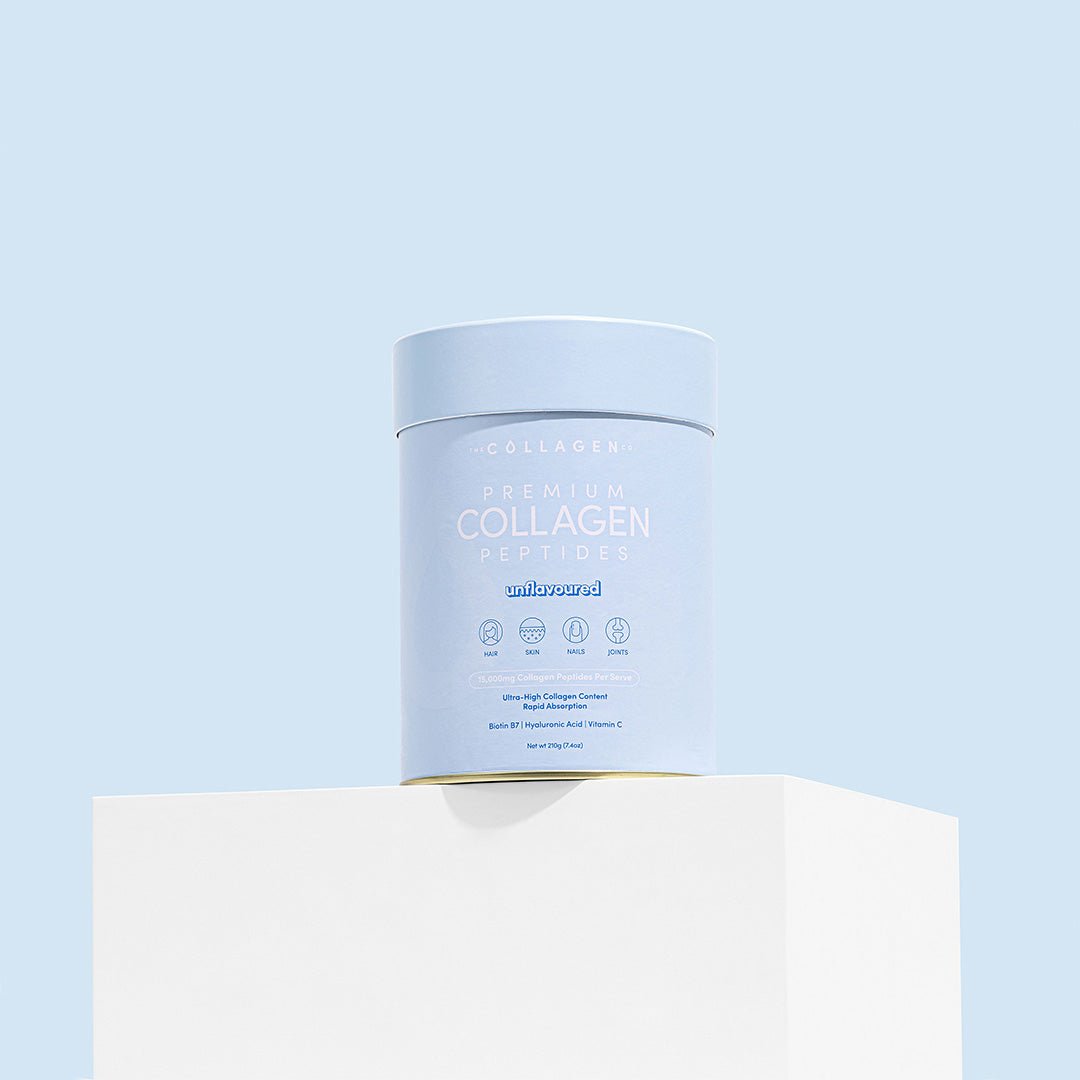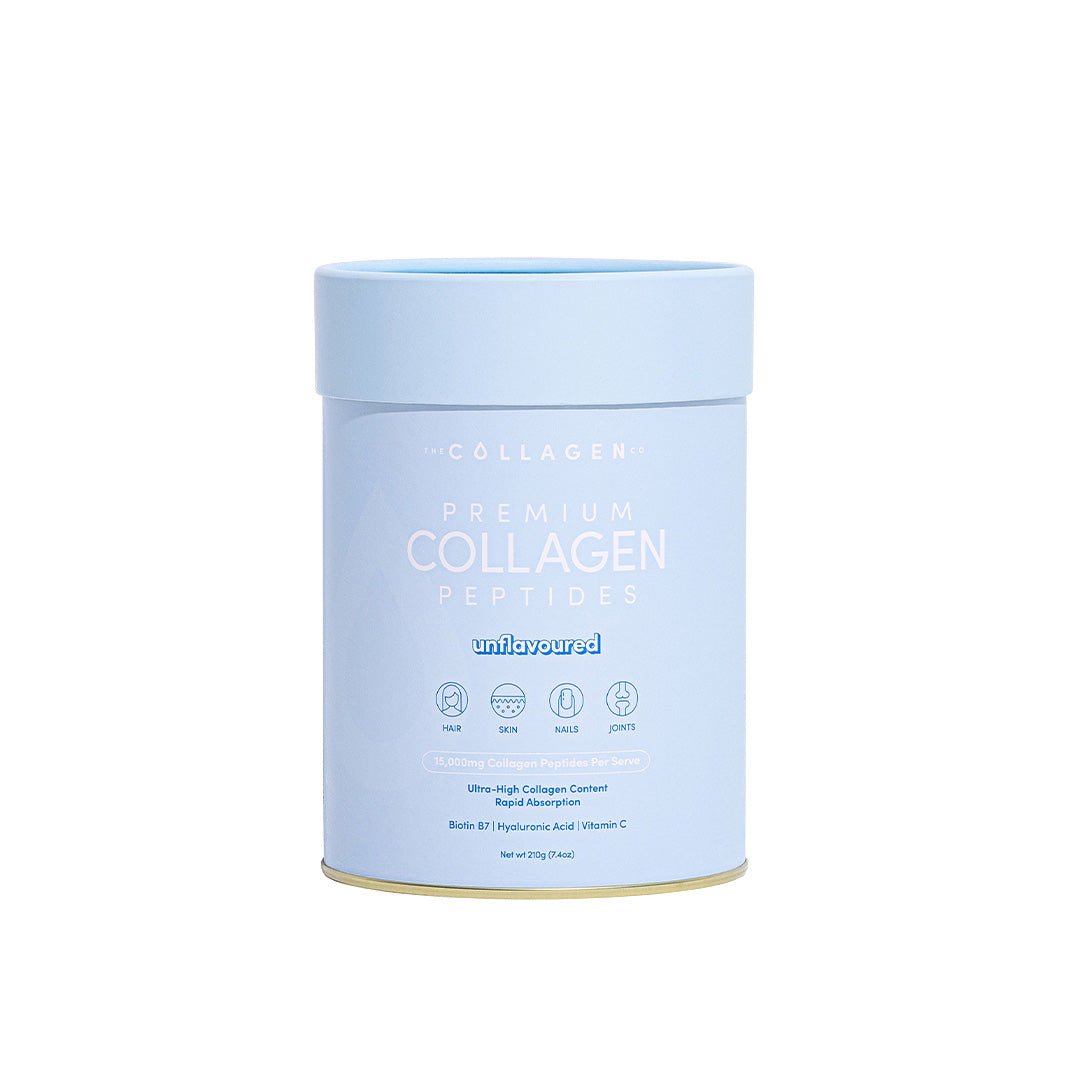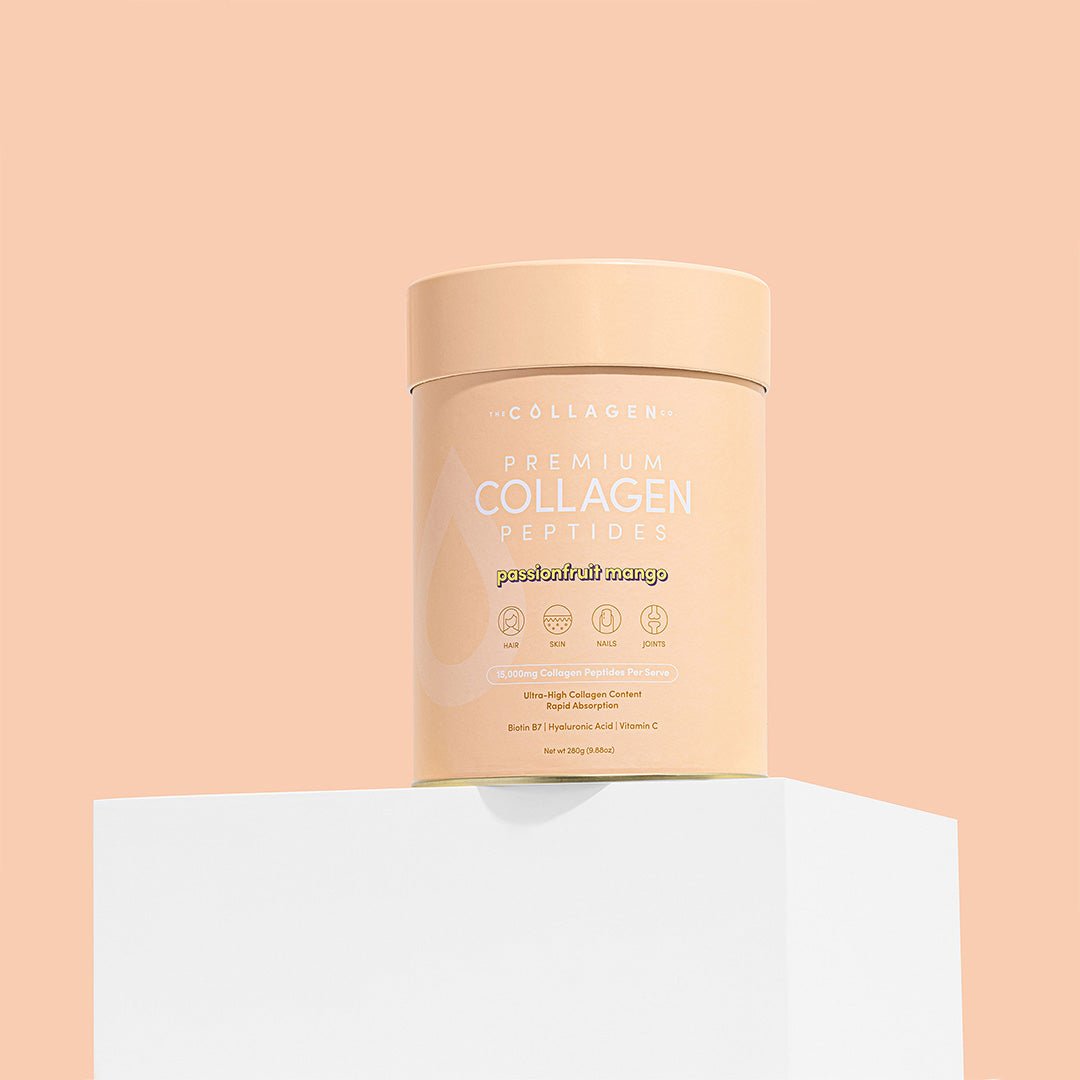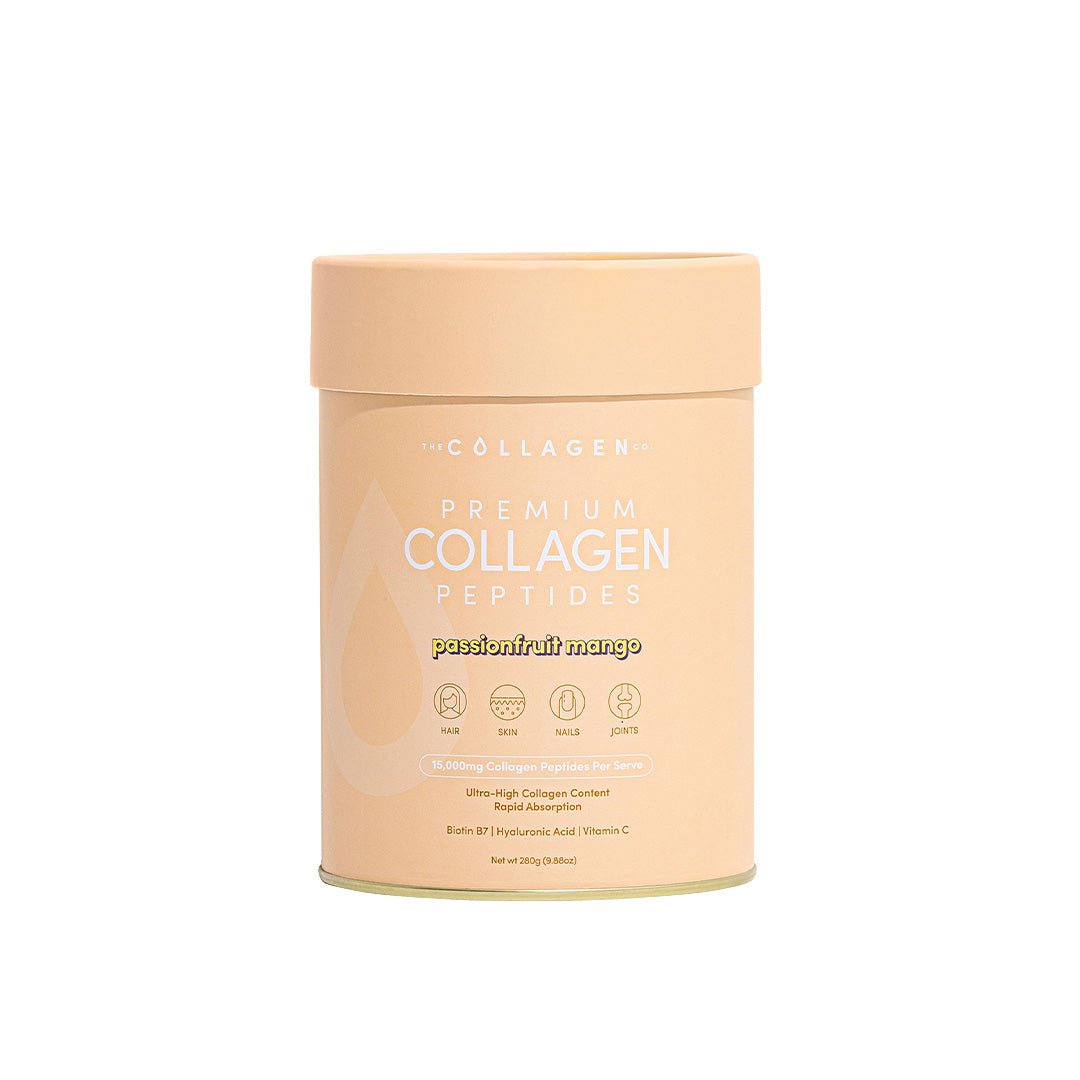Is Collagen Good for Your Heart? (Emerging Research)
Posted 2nd October 2024

Where is collagen found in the body? In your skin, yes. Bones, joints, intestinal lining … mm-hmm, those are your usual (correct, too, FYI) answers. But a crucial, life-enabling location hasn’t been mentioned: the heart.
Below, discover the indispensable roles collagen plays in your heart and how collagen supplementation could improve the health of your body’s “engine room”.
How does the heart work?
First things first. A summary of how the heart keeps your body freshly supplied with oxygen and nutrients while clearing away harmful waste matter.
Your heart is made up of a special kind of muscle (cardiac muscle) and has a left and right side separated by a wall of muscle called the septum.

https://www.texasheart.org/heart-health/heart-information-center/topics/heart-anatomy/
The upper chamber on each side is called the atrium. This connects to a larger, more powerful lower chamber called the ventricle via a sealing valve. When the heart contracts, the chambers become smaller, forcing blood first out of the atria into the ventricles, then from each ventricle into these 2 main arteries:
- Pulmonary artery: Takes blood to the lungs to receive oxygen
- Aorta: Transports freshly oxygenated blood to the rest of the body
The vessels that bring blood to the heart are the veins, and the 2 main veins that connect to the heart are called the vena cava.
Collagen and the heart
What gives your heart the flexibility and strength to work ceaselessly — beating 100,000 times daily, 40 million times yearly, clocking up to 3 billion heartbeats over an average lifespan?
Given what we know about collagen’s role in the body (to provide structure, strength, and support), the answer is, unsurprisingly, collagen.
Just so you know, the myocardial connective tissue that maintains the functional integrity of the heart mainly consists of collagen type 1 (80%) and collagen type 3 (20%). “What’s the difference between collagen types 1 and 3?” If you’d like to know more, check out this article for an in-depth guide to the 3 main collagen types and their specific functions in your body.
The link between collagen and cardiovascular disease
So, you probably know how decreased collagen production in the skin contributes to fine lines, wrinkles, and sagginess.
But does the same apply to the heart?
Well, somewhat. Some research suggests that a decrease in collagen content may contribute to the hardening of blood vessel walls by inducing calcification, leading to heart dysfunction (end-stage dilated cardiomyopathy).
Note: dilated cardiomyopathy is a heart muscle disorder where the heart cavities are enlarged and stretched, compromising the heart’s ability to pump and relax normally.
Is collagen good for your heart?
Or, more specifically, could collagen supplementation promote healthy collagen levels in the heart and, in turn, healthy heart function — just as it encourages dewy skin, flexible joints, and gut health?
While no research directly studies the effects of collagen supplementation on collagen levels in the heart, a 2023 review published in The British Journal of Nutrition presents promising findings.
To assess the effect of collagen peptide supplementation on cardiovascular health, the researchers qualified 12 randomised controlled trials for the quantitative analysis.
The eligible studies:
- Included a total of 748 participants (a collection of healthy and overweight individuals, plus those with type 2 diabetes, mild hypertension, osteoarthritis, and age-related sarcopenia)
- Used a collagen peptide supplementation dose of up to 15 g daily
- Were conducted for a duration ranging from 6 to 12 weeks
Here’s what the researchers found: collagen peptide supplementation positively affected cardiovascular disease biomarkers, including significantly decreasing fat mass, systolic blood pressure, and serum low-density lipoprotein (LDL, or “bad” cholesterol) levels.
This aligns with a 2017 study published in the Journal of Atherosclerosis and Thrombosis.
To evaluate the effect of collagen tripeptide (CTP) supplementation on the development of atherosclerosis (the buildup of fats, cholesterol, and other substances in and on the artery walls), the researchers had the participants ingest CTP twice at breakfast and supper daily (16 g total).
After 6 months, the participants experienced a significant reduction in the following atherosclerosis indices:
- LDL cholesterol to high-density lipoprotein cholesterol (HDL or “good” cholesterol) ratio
- Toxic advanced glycation end-products (which have been implicated in the onset and/or progression of lifestyle-related diseases, including cardiovascular disease)
- Cardio-ankle vascular index (CAVI), which reflects arterial stiffness
The researchers concluded that “CTP contributes to the prevention and treatment of atherosclerosis in healthy humans”.
Collagen is good for your heart, but …
There are 2 things you need to know:
You shouldn’t rely only on collagen supplementation to keep your heart healthy. Living a healthy lifestyle is also essential for heart health. This includes following a regular exercise routine (psst: here’s how to start exercising after a long time or as a complete newbie), getting at least 7 hours of good-quality sleep nightly, eating a nutritious, well-balanced diet, and limiting alcohol consumption.
The quality of your collagen peptide supplement matters. A lot. It’s the functional ingredient that’s beneficial for your heart, after all. This means you want hydrolysed collagen peptides; because of their small molecular weight (between 2 to 3 kDa), these “broken-down” peptides retain their bioactive properties. You also want a high enough dosage. In general, the studies mentioned in this article used anywhere between 5 to 16 grams of collagen peptides daily — so look for a supplement that falls into this range.
Wondering where you can buy hydrolysed collagen peptides that you (and your heart) can feel good about? Check out any of our products on The Collagen Co. No matter which product range you choose, from our Premium Collagen Peptides to Collagen Dream Sleep Formula, you’ll get:
- At least 5 g of hydrolysed, bioactive collagen peptides per serving
- A swathe of synergistic nutrients (e.g., 24 vitamins and minerals in our Glow Shakes!)
- Virtually no added sugar (good for your skin and heart)
- To pick from so many tantalising flavours, from Strawberry Watermelon to Violet Crumble *drools*










































